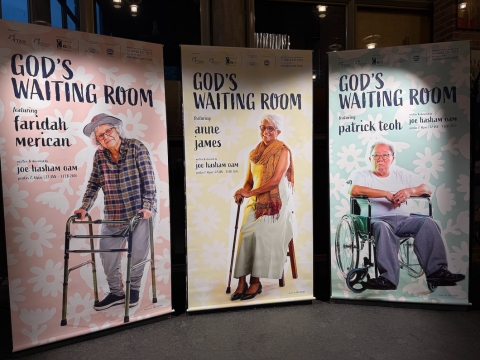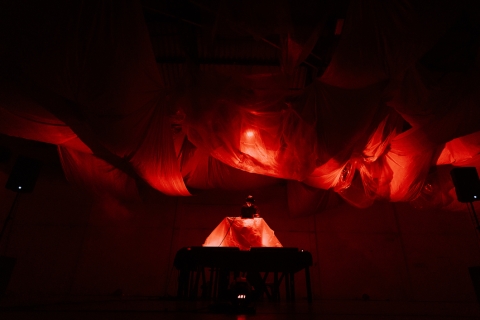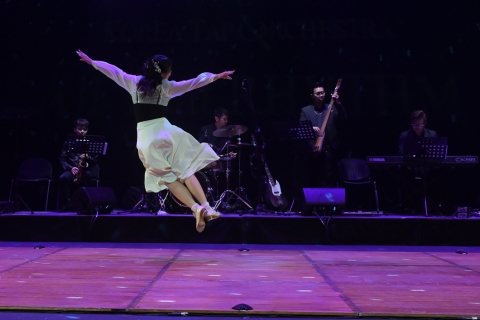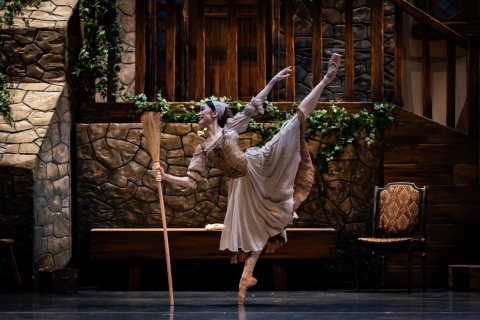“If music be the food of love, play on.” – William Shakespeare
New research has emerged that learning to play a musical instrument can have a beneficial effect on your child’s brain. Let’s hear it from a music teacher in KL, whose three children are all talented musicians as well.
Having exposed and immersed all three of my children to music, they have each grown up loving music. Music is the core of their lives. At 13 years old, our first-born came out of her room one day and played us her first song that she had written. What followed were many more songs, three music albums and several trips to Nashville, Tennessee – the music city of the world.
Our second child became a dancer in her late teens, won a major dance competition that took her to Korea twice. Our youngest child only started playing the piano seriously at age 13. Not a day goes by without them working on writing, playing music, recording or uploading their music on social media music platforms. And with the RMCO, they look forward to playing out again. Busking is certainly on their to-do list!

Music precedes language
Long before a baby is able to comprehend language, he understands the music that is at its core. Music is a pre-requisite for language acquisition. A baby that hears no music nor the voice of his or her mother, will likely have speech delay or emotional dysfunction due to lack of brain stimulation.
Music for emotional development
Many researchers strongly believe that music plays an important role in building babies’ emotional basis. It also helps them gain a sense of confidence. Additionally, music can also help establish a healthy relationship between babies and their caregivers. Singing and speaking to them with direct eye contact help to give them a healthy sense of love and security. Simply replacing this vital emotional connection by using an iPad just will not do.

Music for social development
Human beings are the only mammals that have the ability to create music. In many cultures, music and movement form an integral and inseparable part of life. Music plays an important role in helping babies and children form social relations. Music events bring people together from far away lands, just like how the indigenous peoples in different parts of the world have various ceremonies to celebrate joyous occasions together. No one is left behind. No one is deprived of the magical power of music! So do bring your children to music events like street performances, cultural events and music recitals. They are the best ways to immerse them in music and culture.
Learning a musical instrument
You don’t need to spend a ton of money on musical instruments. Pots and pans are great for beat-making. Or you can make simple shakers, by taking empty water cans or bottles and putting some pebbles or small pasta inside. You can also make a box guitar with a tissue box or shoebox and some rubber bands. Lay the early foundation at home by playing and making music together. Enjoy the bonding time. Have lots of fun creating rhythmic patterns to children songs and moving the body to the beat.

When your child is a little older, you can take him or her to open day events at music schools or concert halls. Here they can explore various musical instruments and participate in the activities lined up for the public. Local community orchestras have open days for the public to participate in music jamming events. Kids are invited to try out instruments and even jam together at the direction of the principal conductors.
Music improves focus
Music also has the power to help students improve their focus, co-ordination, and perseverance. Students with autism and other underlying issues benefit from learning to play a musical instrument. Their attention span and focus help to reduce their habitual and involuntary ticks as well. And music certainly calms them down and make them happier. Keith (featured at the top) came to me for piano classes when he was 16. His progress in music has been astounding. From being able to play only simple pop songs initially, Keith is now a regular pianist at the Kuala Lumpur Performance Arts Center. He performs oldies like Love Story, Yesterday, and Richard Clayderman, to classical composers like Bach and Beethoven. His parents were moved to tears when he successfully performed his first ever solo recital at the Steinway Showroom in KL, to a packed and appreciative audience.
Music and the happiness factor
As a music teacher of 30 years, I have one advice for parents: do so for the happiness factor and not for getting good results in exams. For music is life, and life has its ups and downs, victories and failures, elation and depression. Music has the power to mend our deepest wounds and heal our broken hearts. Let it be a channel for musical expression, communication or therapy, rather than a product of the repetitive mill. And if one day, your child decides to pursue music as a career path, well and good. If not, they can still make music an integral part of their lives.




















